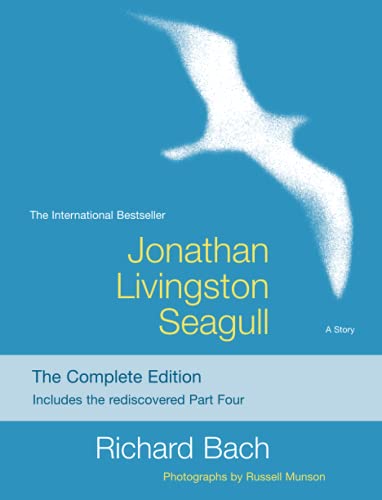The use of life is to discover the law of one’s being, and to follow that law, at whatever cost, to the utmost—John Masefield
Is the purpose of life only to eat, drink, and be merry? Or, is there a higher purpose that one ought to discover before it is too late? Surely, to know how to justify one’s own existence to oneself is to know one’s destiny. However, this is a rather difficult task which entails primarily two steps: to recognise the seeds of creativity one carries in one’s being; and then to nurture these seeds till they grow up to their full potential. And, along the way, one has to brace oneself for fierce opposition, for there are people who are ever ready to put a damper on your growing enthusiasm. And if they fail to dislodge you from your avowed path, they may indulge in activities generally known as psychic assassination.
One book in particular that helps me keep my focus, despite everything, on my chosen track, is Jonathan Livingston Seagull (1973) by Richard Bach. In the book, Jonathan, a seagull, mouthpiece of Bach (Bach in real life was an Air Force Pilot), undergoes tremendous suffering, both physical and mental, as he tries to follow to the utmost the law of his own being. Jonathan decides to cultivate the art of flying rather than “eating, or fighting, or (having) power in the flock.” When his fellow gulls swoop down low over the water in search of food, he stays away practicing flying, stark alone. The first jolt comes when his parents, much to his bitter surprise, approve of other gulls’ vegetating pursuit and disapprove of what he likes doing best. Jonathan before long realises that his only hope lies in advancing.
The harder phase begins when Jonathan attempts to learn loop the loop. Risking his life, he tries umpteen numbers to learn the craft, but without success. Disappointed and frustrated he decides to call it quits and go back to the fold he once left. While feeling torn between whether to remain alone practicing his first love or to fight over crumbs of food along with his fellow gulls, he resolves to give it another try. This time he tucks his forewings in, extends his wingtips. And lo! He could fly in a complete circle, vertically, at an amazing speed. Once Jonathan makes the breakthrough he joins his flock in the hope that he will be able to share with others what he has achieved. But to his shock and disbelief he is first admonished for daring to do more and then he is banished.
“This price of being misunderstood” is too heavy. At times it seems too much to bear. You feel left out in the cold. This sense of painful isolation can be scary. However, the moment one recognises the intensity of one’s inner desire, a small voice from within pipes up in no time: “In casting you out, the other gulls have only hurt themselves, and one day they will know this, and one day they will see what you see. …”
So despite being stunned, Jonathan, suspending his disbelief, soars away, to a world beyond this world, with a couple of gulls as his godsend guide. There he discovers that “the most important thing in living was to reach out and touch perfection in that which one most loved to do.” Thus, ignoring “everything that limits us” Jonathan succeeds in his quest for freedom, before showing the path to a handful of others who manage to dissociate themselves from the beaten-track-following flock of gulls. Jonathan Livingston Seagull is an absolute must for those who wish to persist in their endeavours. It teaches that even when one is repeatedly cut by people who harbour jealousy, and lack faith, one must never fall prey to their evil designs, knowing that the “flight of ideas” can break all barriers.
And finally, we must continue to seek what is best in us, and, in the process, show others how “The They” too could bring about a metamorphosis with just a little extra effort. Richard Bach, in an epigraph to this book, points out that Jonathan lives within us all. He does indeed.
